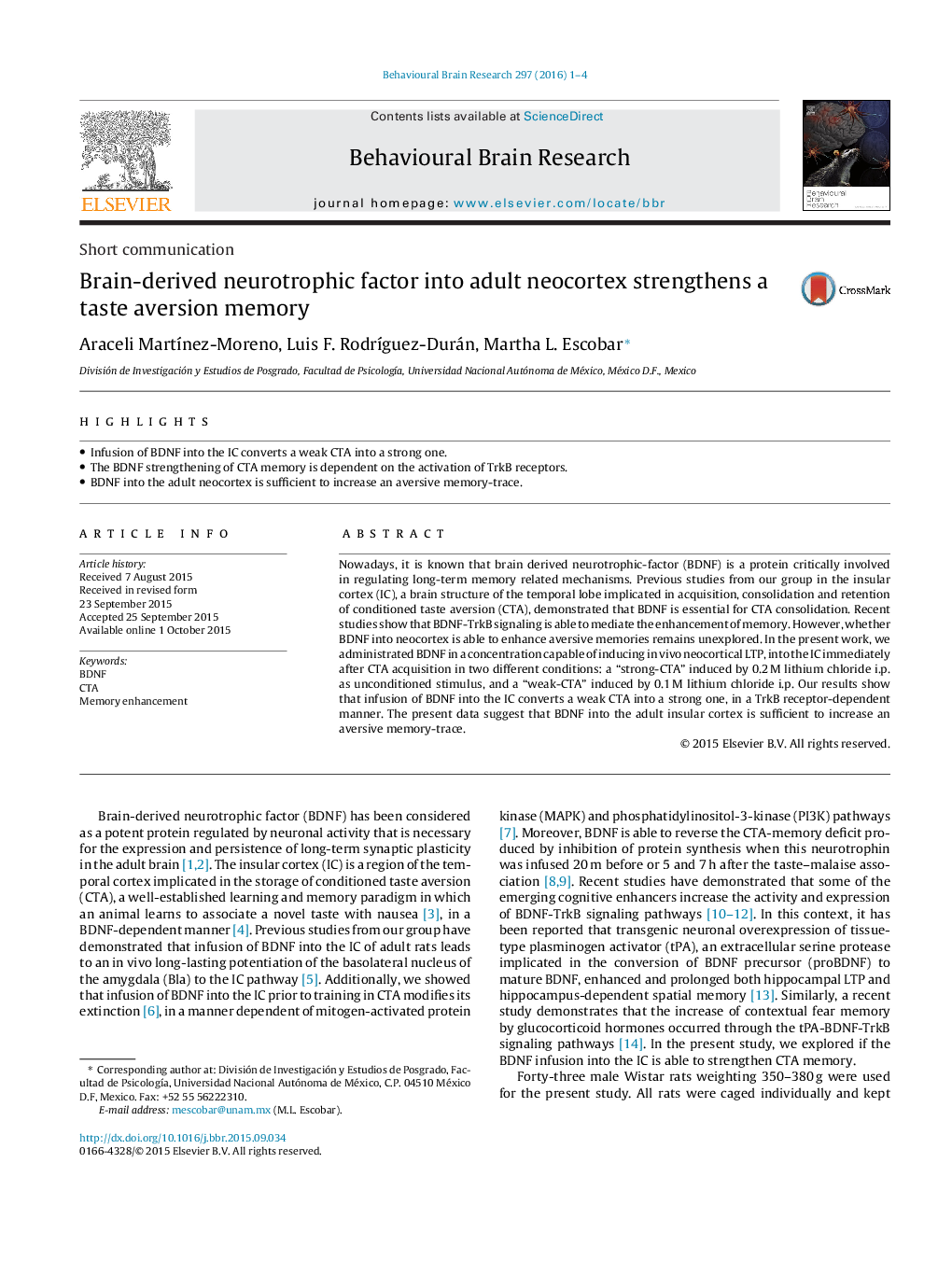| Article ID | Journal | Published Year | Pages | File Type |
|---|---|---|---|---|
| 6256440 | Behavioural Brain Research | 2016 | 4 Pages |
â¢Infusion of BDNF into the IC converts a weak CTA into a strong one.â¢The BDNF strengthening of CTA memory is dependent on the activation of TrkB receptors.â¢BDNF into the adult neocortex is sufficient to increase an aversive memory-trace.
Nowadays, it is known that brain derived neurotrophic-factor (BDNF) is a protein critically involved in regulating long-term memory related mechanisms. Previous studies from our group in the insular cortex (IC), a brain structure of the temporal lobe implicated in acquisition, consolidation and retention of conditioned taste aversion (CTA), demonstrated that BDNF is essential for CTA consolidation. Recent studies show that BDNF-TrkB signaling is able to mediate the enhancement of memory. However, whether BDNF into neocortex is able to enhance aversive memories remains unexplored. In the present work, we administrated BDNF in a concentration capable of inducing in vivo neocortical LTP, into the IC immediately after CTA acquisition in two different conditions: a “strong-CTA” induced by 0.2Â M lithium chloride i.p. as unconditioned stimulus, and a “weak-CTA” induced by 0.1Â M lithium chloride i.p. Our results show that infusion of BDNF into the IC converts a weak CTA into a strong one, in a TrkB receptor-dependent manner. The present data suggest that BDNF into the adult insular cortex is sufficient to increase an aversive memory-trace.
